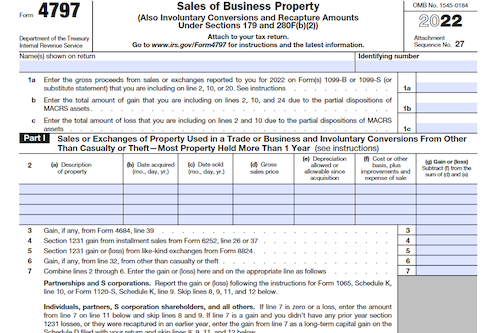Employers in American Samoa, Guam, the Commonwealth of the Northern Mariana Islands (CNMI), and the U.S. Virgin Islands must use Form 941-SS to report the social security and Medicare taxes they pay for their workers. This article outlines the due dates, filing requirements, and exceptions to filing Form 941-SS.
What is Form 941-SS?
Form 941-SS is used by employers in American Samoa, Guam, the Commonwealth of the Northern Mariana Islands (CNMI), and the U.S. Virgin Islands to report social security and Medicare taxes for their employees. Wages paid, tips reported, both the employer and employee’s share of taxes, and other taxes due must be reported on this form. Generally, Form 941-SS must be filed quarterly, with exceptions for seasonal employers or those filing a final return. Small business employers may request to file Form 944 instead of Form 941-SS if their employment taxes are expected to be $1,000 or less. Reorganizing or closing a business may result in a final return or a request to file Form 944 instead. Form 941-SS is due for filing by the end of the month following the quarter in which wages were paid.
IRS Form 941-SS – Who Needs to Fill It Out?
Employers with a principal place of business in American Samoa, Guam, the CNMI or the U.S. Virgin Islands, or those with employees subject to income tax withholding for the same jurisdictions, must fill out IRS Form 941-SS to report social security and Medicare taxes. These taxes are paid each quarter and are generally due the last day of the month after the end of the quarter. Lack of payment may result in penalties, even if there is no tax liability reported. Some employers may instead be required to file Form 944 or follow different rules regarding filing & payment; for more information, refer to the General Instructions Form W-2 and W-3. Final returns must also be filed in certain circumstances; generally the box on line 17 of the form should be checked to indicate a final return. Requests to file Form 944 instead of quarterly Forms 941-SS or vice versa may be made through the IRS between January 1st and April 3rd, or postmarked by March 15th.
Step-by-Step: Form 941 SS Instructions For Filling Out the Document
Filing Form 941-SS is necessary to report social security and Medicare taxes for workers in American Samoa, Guam, the CNMI, and the U.S. Virgin Islands. Each time wages are paid, tax amounts must be withheld for social security and Medicare taxes and may also have additional Medicate taxes based on wages paid. These returns must generally be filed on a quarterly basis with the initial Form 941-SS return for the quarter dues by the last day of the following month, and thereafter quarterly until filing a final return. Exceptions exist for seasonal employers, employers of household employees, and employers of farm employees. Employers in the specified jurisdictions may file provide notice to request to file Form 944 instead of Forms 941-SS if the tax liabilities for the year are expected to be $1,000 or less. Form 941-SS should also not be used to report backup withholding or nonpayroll payments. If a business or transfer or closure occurs, new documentation may be required. Written requests should be sent to the Department of the Treasury for evaluation.
Below, we present a table that will help you understand how to fill out Form 941-SS.
| Reporting Form | Details |
|---|---|
| Form 941-SS | Necessary to report social security and Medicare taxes for workers in American Samoa, Guam, the CNMI, and the U.S. Virgin Islands. |
| Tax Withholding | Tax amounts must be withheld for social security and Medicare taxes, and additional Medicare taxes may apply based on wages paid. |
| Filing Frequency | Generally quarterly, with the initial return due by the last day of the following month, and thereafter quarterly until filing a final return. Exceptions exist for seasonal employers, household employees, and farm employees. |
| Form 944 Option | Employers in specified jurisdictions may request to file Form 944 instead of Forms 941-SS if the tax liabilities for the year are expected to be $1,000 or less. |
| Exclusions | Form 941-SS should not be used to report backup withholding or nonpayroll payments. |
| Business Changes | If a business transfer or closure occurs, new documentation may be required, and written requests should be sent to the Department of the Treasury for evaluation. |
Do You Need to File Form 941-SS Each Year?
Generally, employers with employees working in American Samoa, Guam, the Commonwealth of the Northern Mariana Islands (CNMI), and the U.S. Virgin Islands are required to file a return for the first quarter they pay wages subject to social security and Medicare taxes and for each quarter thereafter until a final return is filed. However, some employers may qualify for seasonal employer exceptions or be required to file Form 944 instead of Form 941-SS if their liabilities are $1,000 or less. There are also special procedures for employers who reorganize or close their business. Form 941-SS is generally due on the last day of the month following the end of the quarter. Employers who file and pay taxes on time may file up to 10 days after the last day of the quarter. However, any due date for filing falling on a weekend or legal holiday may be filed on the next business day.
Download the official IRS Form 941-SS PDF
On the official IRS website, you will find a link to download Form 941-SS. However, to make it easier for you, we are providing the link in our article, which comes directly from the official irs.gov website! Click to download: Form 941-SS
Sources:




